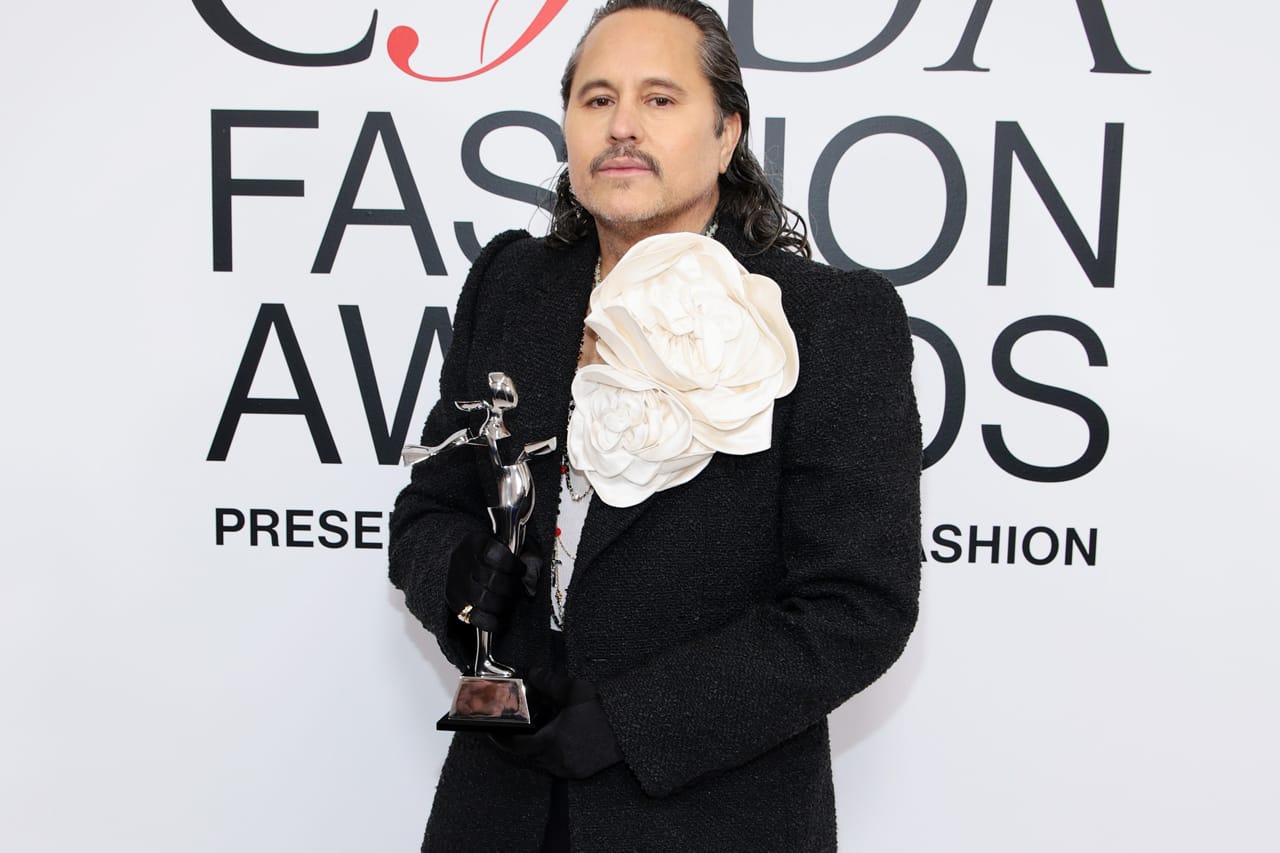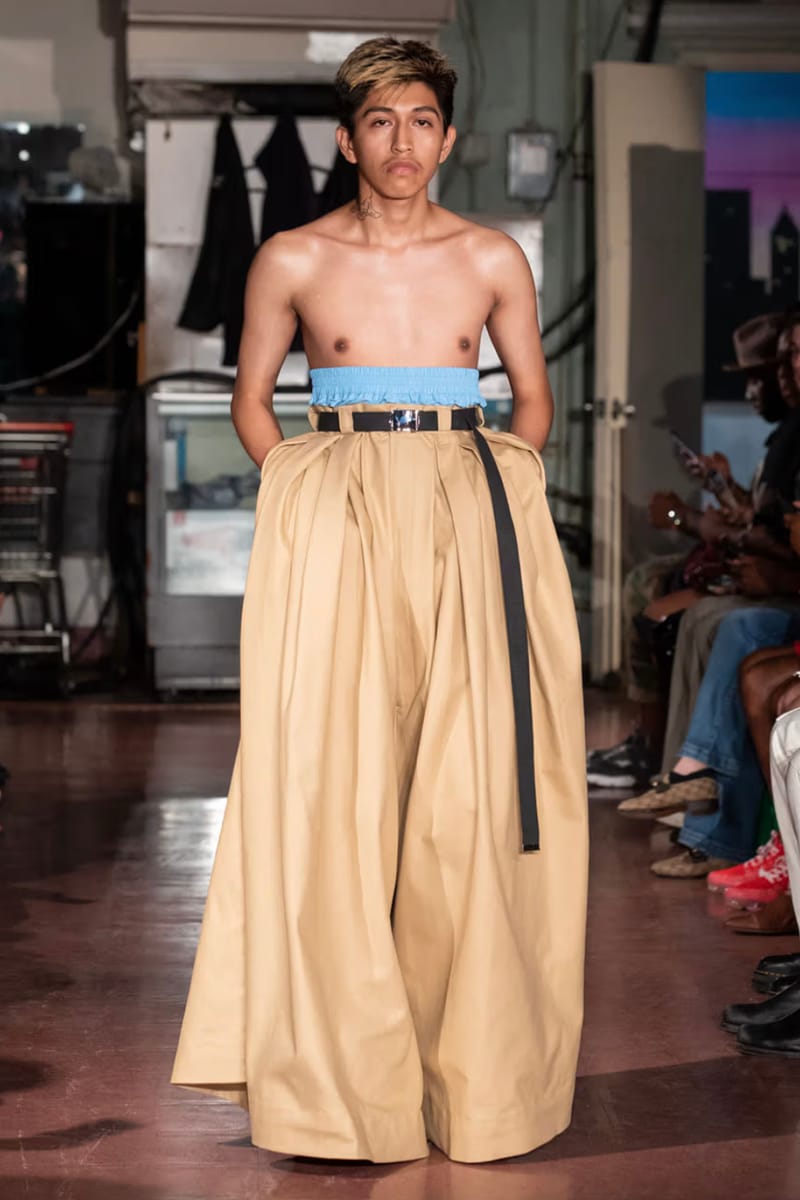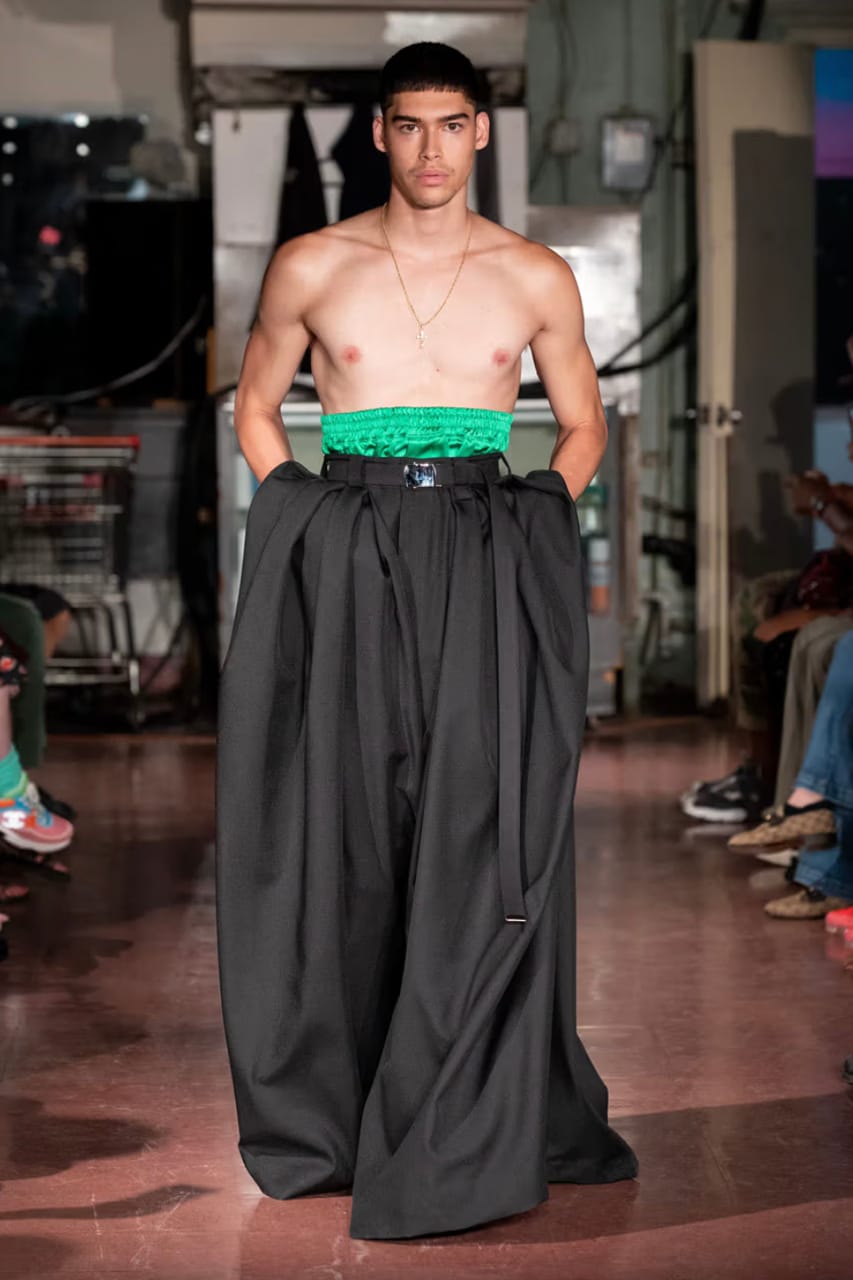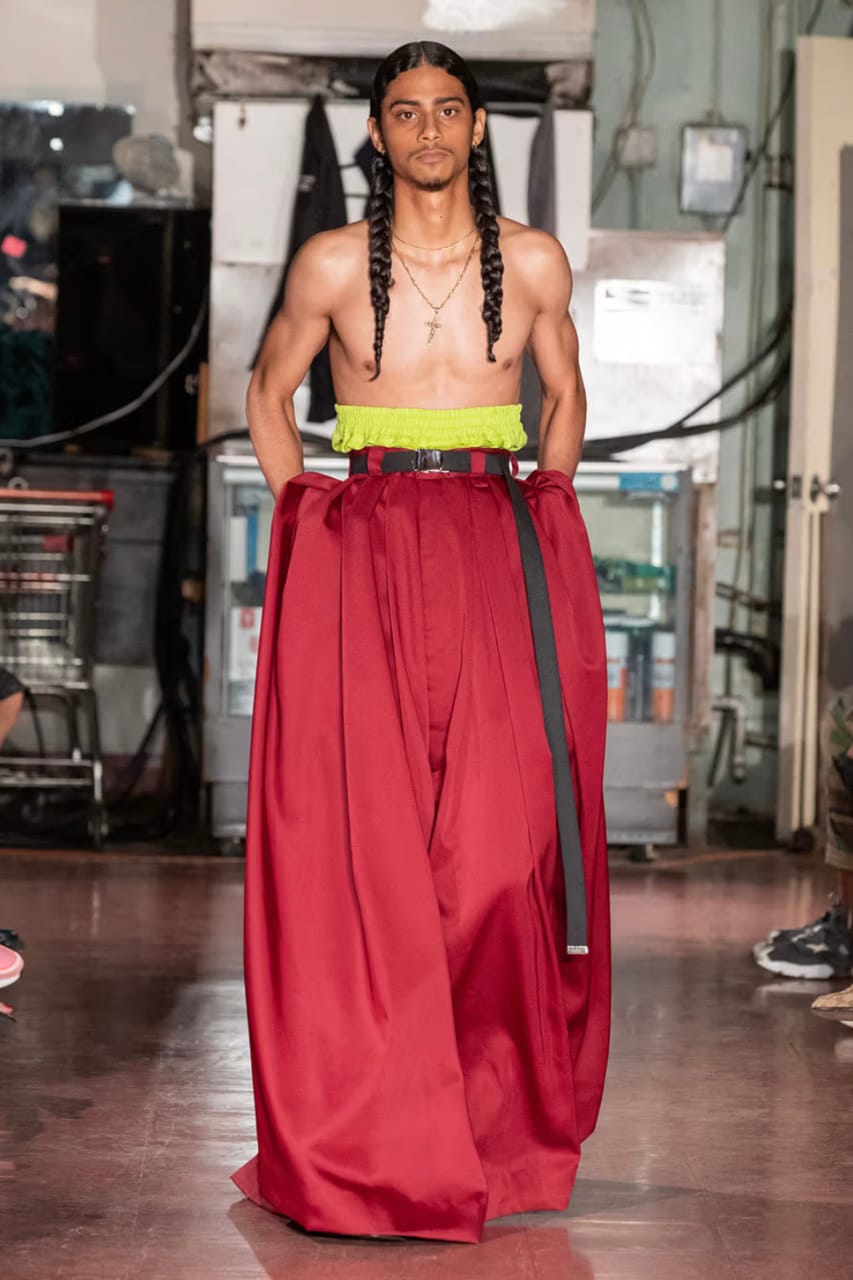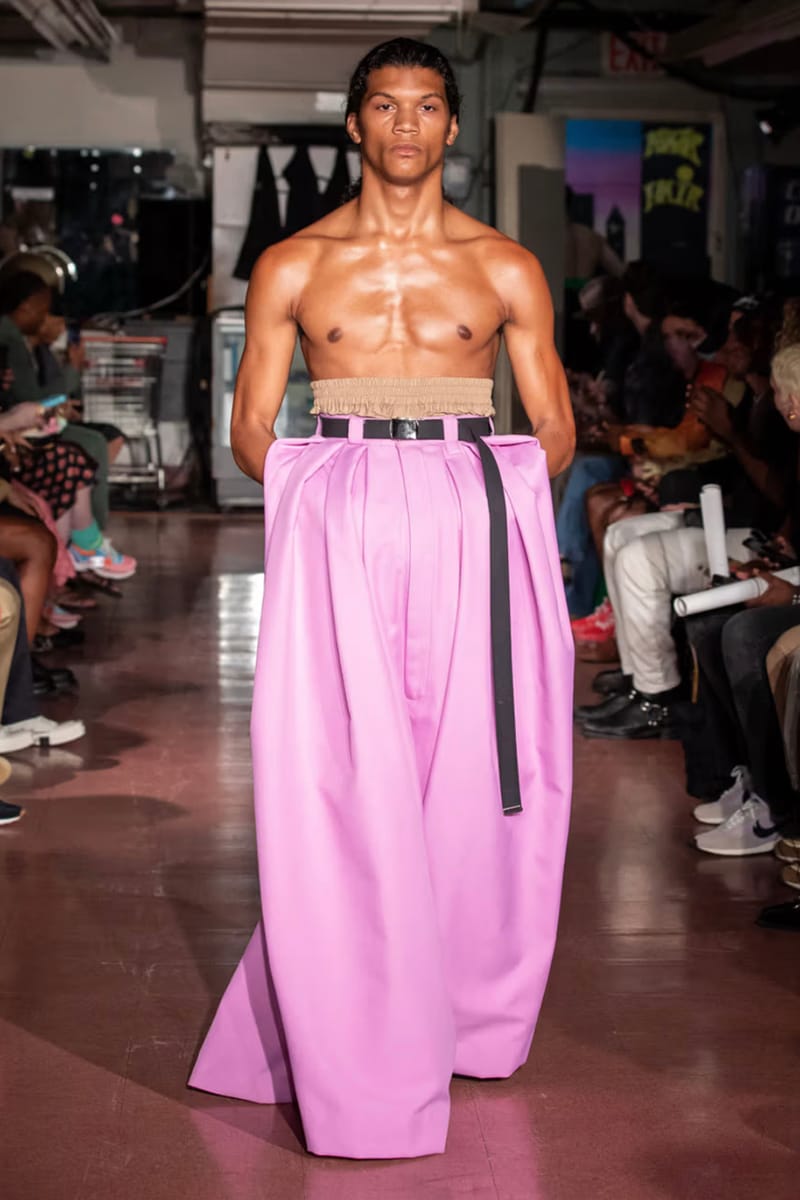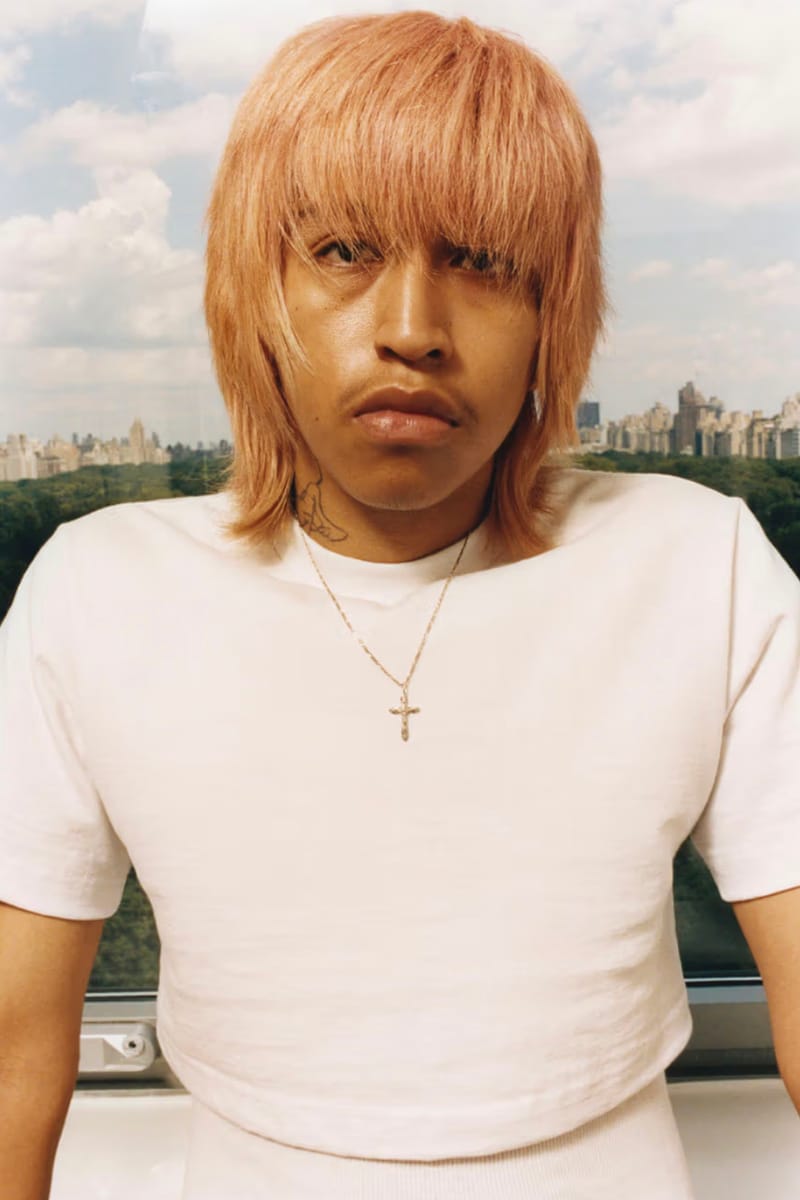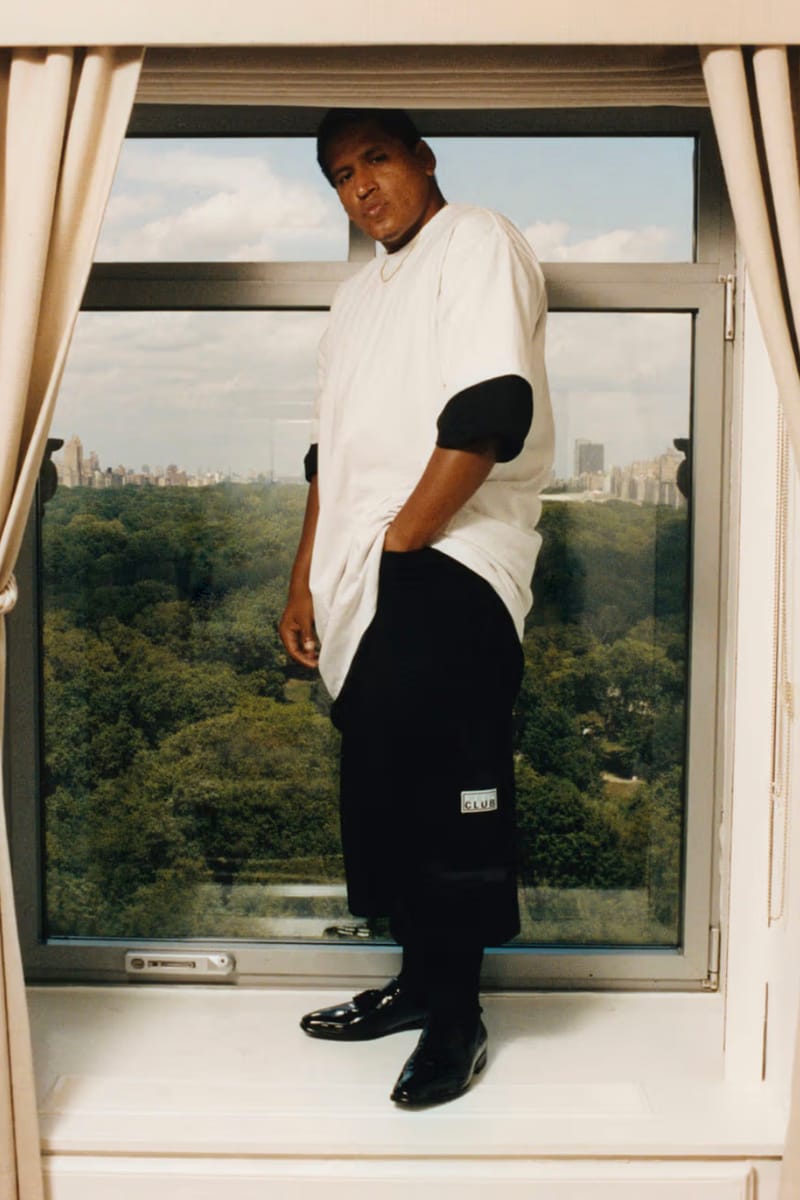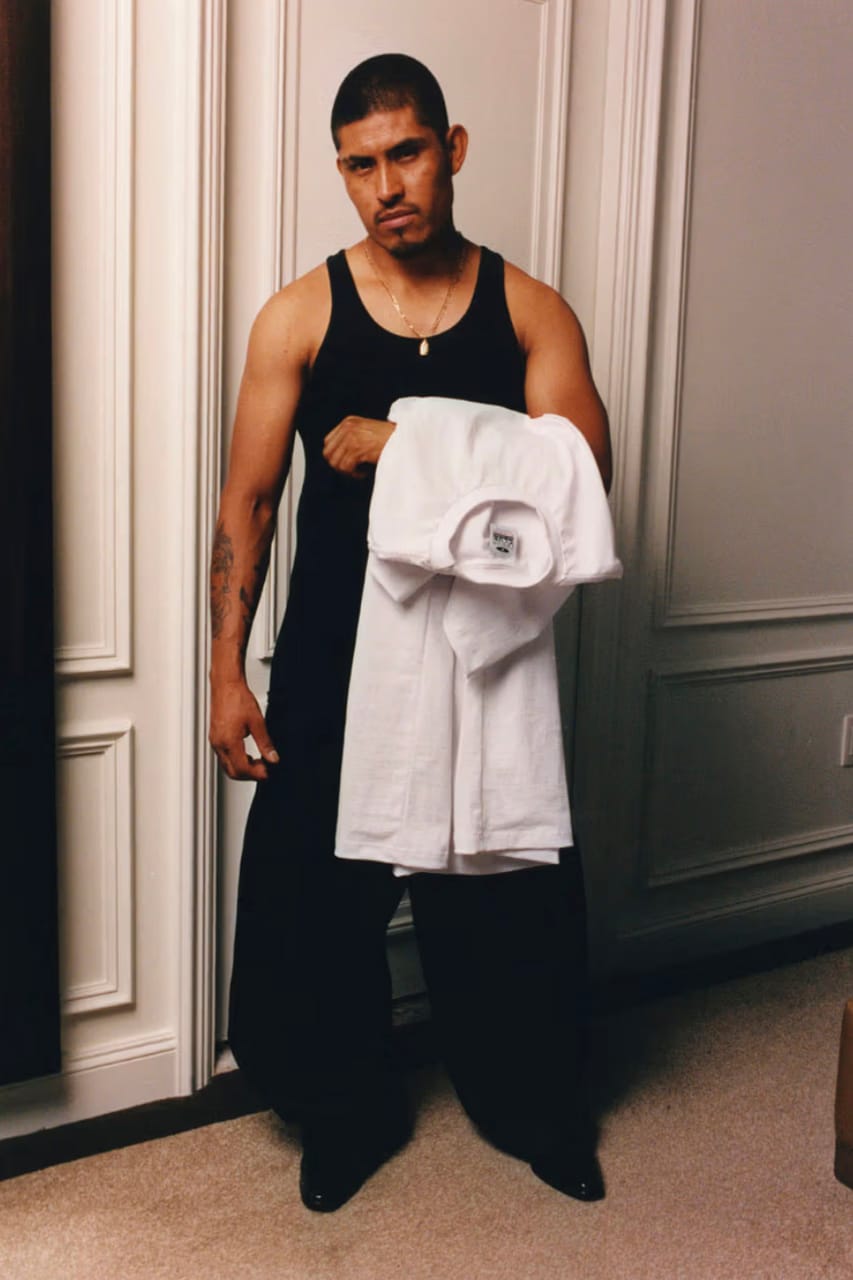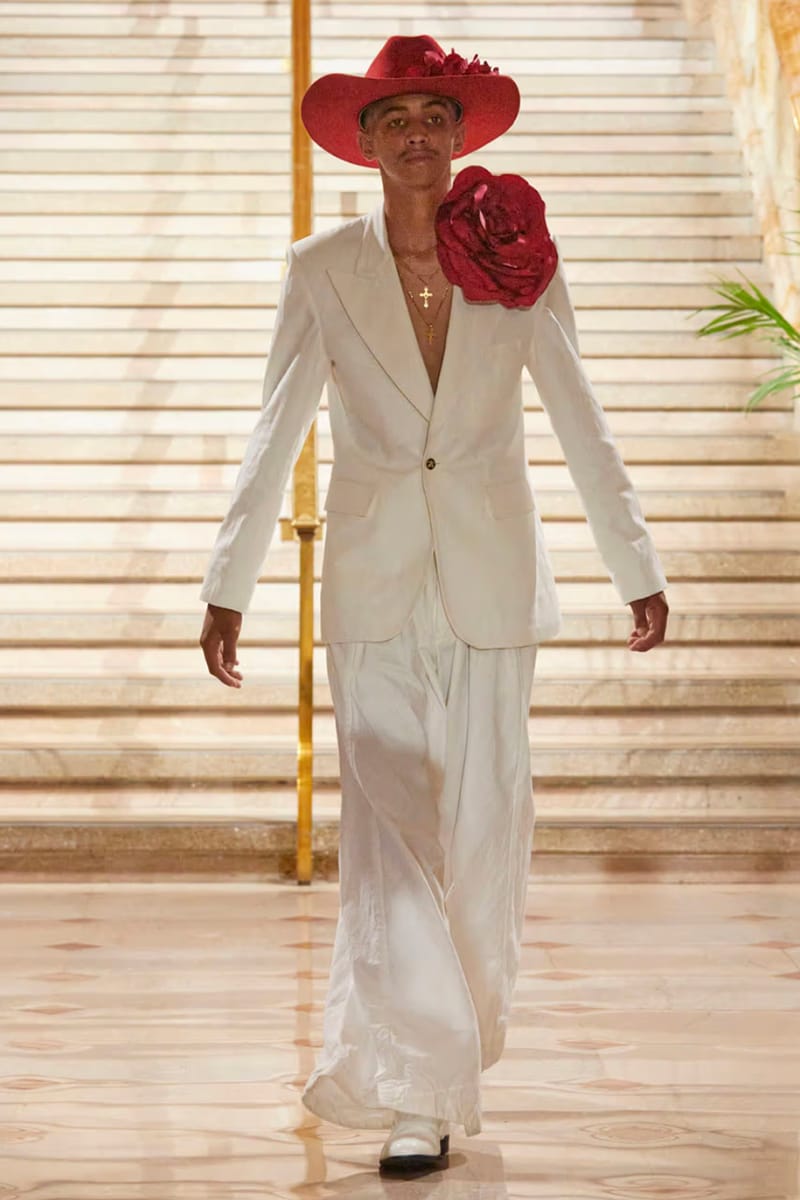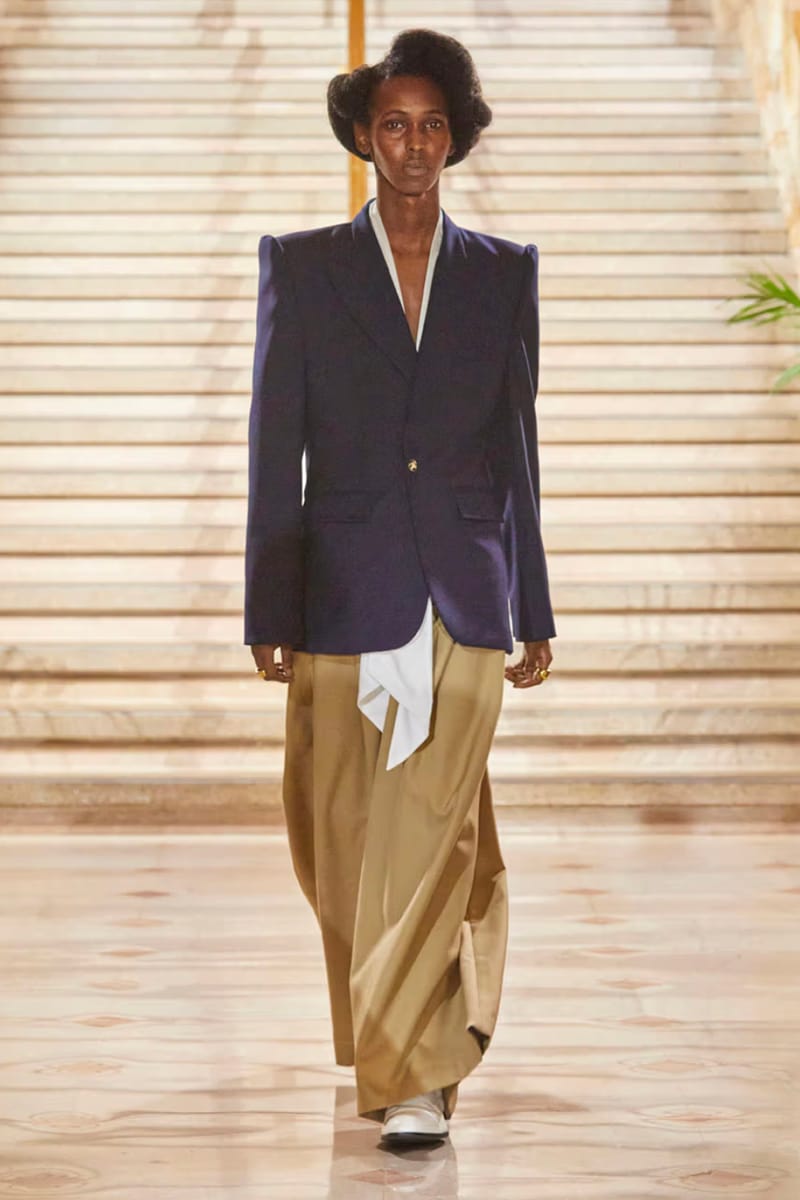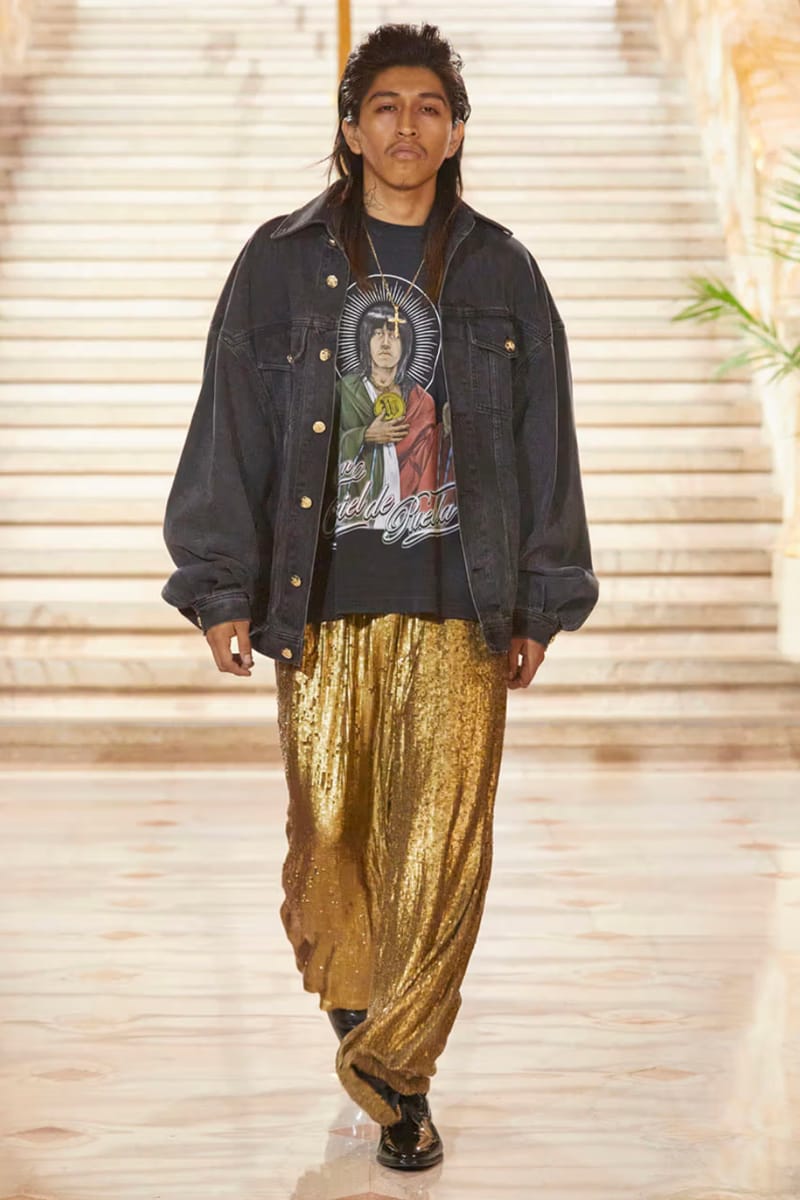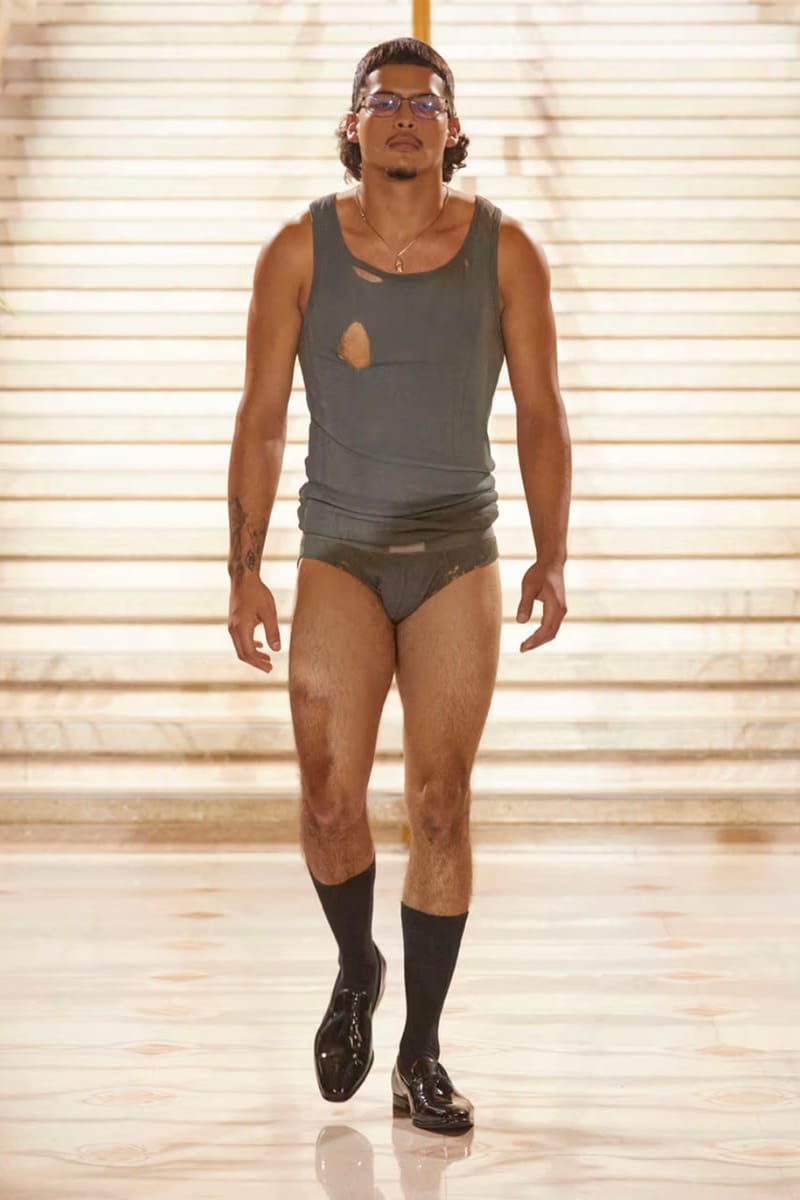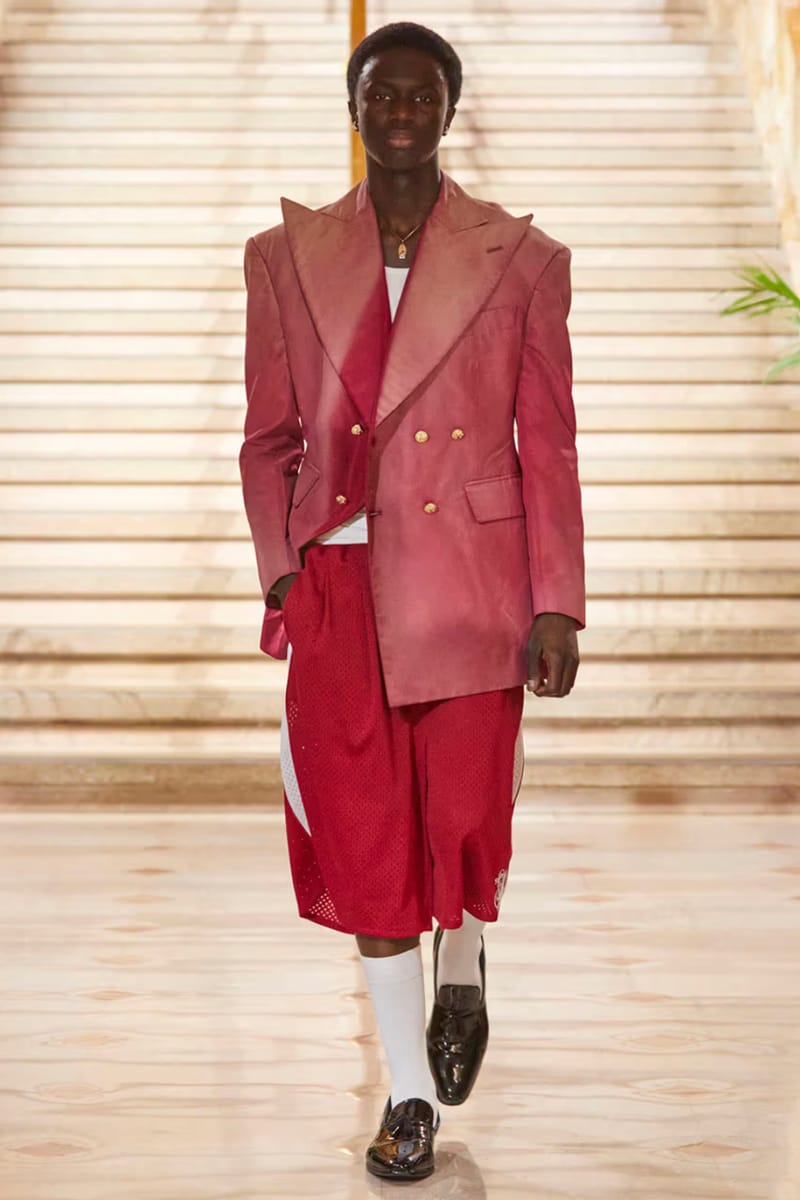How Willy Chavarria’s Self-Reflective Fashions Won Him the 2023 American Menswear Designer of the Year Trophy
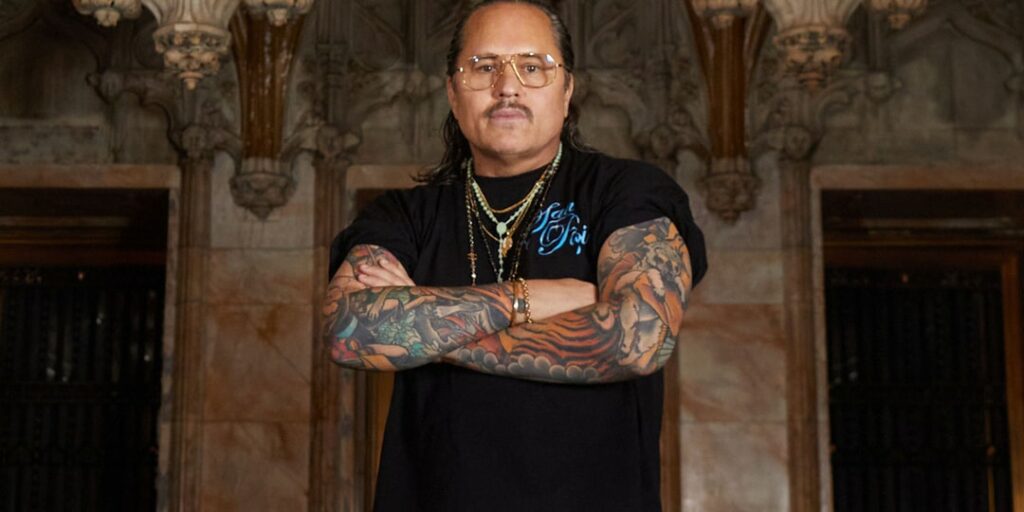
It was just in September that Willy Chavarria’s Spring 2024 offering, his “most emotional collection” to date, as he described it to Hypebeast, was brought to the runway. The Fresno, California-hailing fashioner has always viewed his design practice as a medium for self-reflection, a platform for building up those who look, see and feel like he does. But what was most special about that Spring 2024 collection was its ability to articulate the different facets of Chavarria’s being: facets that, at one point, felt like barriers to his success in the notoriously exclusive world of fashion.
Chavarria’s powerful, heartfelt interpretation of those historically disadvantaged signifiers — his queerness, his biracial identity as the descendant of an Irish-American mother and a Mexican-American father, and his working-class upbringing among immigrant farmers in California’s San Joaquin Valley — became awe-inspiring for anyone who could see themselves in them. And on the evening of November 6, Chavarria accomplished what once felt out of reach, as he took home the trophy for American Menswear Designer of the Year at the 2023 CFDA Fashion Awards.
“We need to do whatever we can through our business, through our human context or our daily lives, to make others feel loved and empowered,” said Chavarria as he accepted his award, wearing a signature, grandiose white rosette on his left lapel. This philosophical musing, albeit a musing directed at today’s unprecedented global political events in the context of his speech, has long rooted Chavarria’s brand; and it’s the crux of why his label is so vital to this industry.
Dimitrios Kambouris/Getty Images
In under a decade, Chavarria has transformed himself from an enigmatic designer at mid-tier fashion brands (think Joe Boxer and American Eagle) to arguably the most-celebrated Latinx designer in the American fashion circle. His unorthodox design language challenges those of traditional, commercial brands, and upon founding his eponymous brand in 2015, Chavarria’s abandonment of corporate fashion’s uniformity let his personal priorities, which have always been uplifting those with shared identities to his own, move into the center of his mood boards.
He first captured New York’s attention by setting his Spring 2018 collection inside The Eagle, the city’s famously revelrous, leather-filled gay bar. The line, titled “Cruising,” had an obvious connection to the happenings of that establishment, but it also nodded to the lowrider culture that was representative of his Latinx upbringing in the ‘80s. It was romantic, seductive and realistic — three descriptors that quickly became synonymous with the Willy Chavarria brand.
Those who own a piece from his collections have probably spotted the miniature green tab that reads “capitalism is heartless.” It’s a testament to the brand’s unwavering commitment to authenticity, and perhaps it’s also a nod to the freedom the designer gained once granted the opportunity to depart from the money-driven labels that live a few pages back on his resume. Chavarria is running a business; but it’s abundantly clear that he’s not thinking about turning the highest profit. He’s pondering his impact — both on the people he encounters and on the planet.1 of 4
Michael D. Subrizi/Gorunway.com/Vogue Runway2 of 4
Michael D. Subrizi/Gorunway.com/Vogue Runway3 of 4
Michael D. Subrizi/Gorunway.com/Vogue Runway4 of 4
Michael D. Subrizi/Gorunway.com/Vogue Runway
For Spring 2020, his designs were galvanized by the styles of Bay Area partygoers in the ‘90s — more specifically, those that attended his events at The Love Garage, a San Francisco nightclub he used to run while attending school in The Bay. The collection toyed with the tensions between queerness and masculinity to create a range that progressively adhered to the new-age man.
Two years later, for Spring 2022, he sent several shirtless men, wearing high-waisted, cinched, box-pleated trousers with protruding, skirt-like proportions, down a makeshift runway at Astor Place Hairstylists (a 74-year-old underground barber shop that almost shuttered during the pandemic). Their femininity was contrasted by hypermasculine leather jackets and Western-inspired ensembles that paid homage to his days on the field. This breadth, coupled with the likes of Offset sitting front row, made the spectacle feel applicable to all types of men while still harkening to Chavarria’s core identity.
The models on the designer’s runways are just as self-expressive as the clothing. The “Chavarria man” is unlike that of any other neighboring New York brand: there are beefy men, short kings, ultra-tall fellas, men in their 40s and 50s, guys with hair down to their lower backs, and people who’ve foregone their masculine identifiers entirely. In his careful casting selections, Chavarria looks to disrupt not only fashion’s beauty standards, but also those that are held specifically for Latinx men.1 of 4
Dickies/Willy Chavarria2 of 4
Dickies/Willy Chavarria3 of 4
Dickies/Willy Chavarria4 of 4
Dickies/Willy Chavarria
With rising notoriety, Chavarria was appointed the senior vice president of design at Calvin Klein in 2021. While the role might resemble those of his former, corporate past on paper, Chavarria’s sharp tailoring lends itself seamlessly to the minimalist codes of the multi-billion dollar brand, where he specifically leads the “conceptual vision” for its North American collections. And with his sizable check from PVH Corp., he’s able to further fuel the artistic nature of his namesake imprint.
His rattling approach to brand-building is the key to his accolade-certified breakthrough; but the inner-workings of his design process prove that it’s not all for show. For his Spring 2023 collection, which featured a mix of highly-tailored garments and more-affordable collaborations with Dickies, FB Country and Pro Club, Chavarria ensured that 60% of his designs were made-to-order by hand, as opposed to machinery. In doing so, he radically placed his accessible designs in the same category as his classic, higher-priced items with a couture-like production plan that ultimately prioritized sustainability.1 of 5
Selwyn Tungol2 of 5
Selwyn Tungol3 of 5
Selwyn Tungol4 of 5
Selwyn Tungol5 of 5
Selwyn Tungol
His latest collection, for Spring 2024, was his “most authentic,” in his own words. His personal influences were noticeably abundant, and most notable among them was the notion of “machismo” that anchored the generations of men that came before him — more specifically, the hats that his father and grandfather would wear while working long days in the fields of San Joaquin Valley. ”It’s a symbol of manhood,” said Chavarria of the hats. “The idea of machismo has been so broken down. It doesn’t mean the same as it did before.”
The hats, often adorned with red roses, were only the beginning of Chavarria’s expansive output, which crossed through sportswear, eveningwear, streetwear and underwear all at once. It was intentionally tethered, scrumptiously unexpected and dramatically romantic. Above all, it showcased just how easily he’s able to erase the lines between formerly separate domains in menswear.
Eight years after his namesake brand’s launch, the line painted a contemporary picture of who Willy Chavarria is today: a provocative, experimental fashion purveyor of genre-removed menswear; an introspective creative who’s mastered the art of unapologetic self-expression; a beacon for the LGBTQ, Latinx and immigrant communities in fashion; and now, the American Menswear Designer of the Year. For those prying the secret sauce to his victorious career thus far, Chavarria keeps his words of wisdom succinct: “Work your ass off. Don’t give up. Follow your heart.”
Source: Read Full Article
